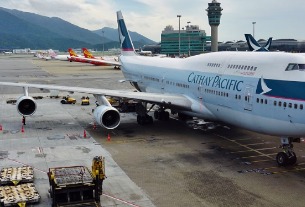During its first six months of existence, Bluegogo, China’s third-largest bike-sharing firm, dumped 600,000 bicycles into Chinese cities. Twenty million people signed up to use them; investors showered the company with $58 million in funds. But with rental rates as low as $0.07 per half-hour, Bluegogo’s days were numbered and last week the company folded. In an apologetic letter, its CEO conceded that he had been “filled with arrogance.”
He’s not the only one. In the space of 18 months, dockless bike-sharing has become one of the hottest investment trends in China, with the two biggest players each having raised over $1 billion in venture funds, respectively. That money has funded a revolution on the traffic-choked streets of Chinese cities, giving urbanites a low-cost, carbon-free means to get around quickly. What it hasn’t produced is a viable business model. A little over a year into China’s bike-sharing boom, the industry’s future looks precarious.
As recently as 2016, Hangzhou was home to the world’s biggest bike-sharing network, with 3,572 stations, 84,100 bikes and an average of 310,000 users per day.
The concept works best when there are lots of bikes lying around for customers to access. China’s bike-sharing companies did not disappoint. As of August, there were 1.5 million shared bikes available in Shanghai alone and Chinese were taking millions of rides per day. Mountains of shared bikes piled up outside subway stations in China’s biggest cities.
For now, China’s two dominant bike-sharing companies — Ofo and Mobike — remain afloat, supported by some of the world’s biggest and most generous funders. But the pressure to generate cash is growing and as recently as October they were in talks to merge. That would give the Chinese government something it prefers: a single entity to regulate, rather than a swarm of startups. At the same time, it’d probably come at the expense of smaller cities, which are unlikely to benefit from the economies of scale — and higher prices — possible in places like Shanghai.
Read Original Article




